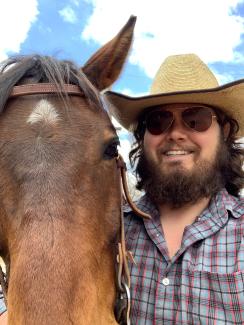
It was in Boston, almost 250 years ago, that a group of formerly enslaved Black men led the first organized movement for abolition in America’s history. Their names rarely spoken today, the men — Felix Holbrook, Sambo Freeman, Peter Bestes, Chester Joie, Prince Hall, and many others — were known across Revolutionary Massachusetts for their courage. Allied with leading white Patriots like Samuel Adams, Holbrook and his associates took their fight to end slavery to the colony’s highest levels of power.
Soon after launching his campaign in the winter of 1773 and petitioning the General Court to act against slavery, Holbrook was joined by white and Black allies. Although the court passed multiple bills aimed at ending the slave trade, each failed because the colony’s royal governors refused to sign them into law. The “Freedom Petitioners,” as the men were called, knew that Britain and its colonial officials were adamantly opposed to their cause and so turned to the citizens of Massachusetts.
Holbrook and the men conducted a sophisticated publicity campaign that stretched far beyond Massachusetts. They advertised their appeals in leading Patriot newspapers of the day, such as the Massachusetts Spy. And they prevailed upon Patriot authors to reprint their petitions. One who did was John Allen, whose “Orations on the Beauties of Liberty” was surpassed in popularity only by Thomas Paine’s “Common Sense.” The petitioners ultimately proved so successful in their outreach efforts that by the end of the War for Independence, nearly 40 towns across Massachusetts — including Boston, Pittsfield, Salem, Taunton, and Worcester — had voiced their opposition to slavery. Some, like Upton, Charlemont, and Georgetown, had gone so far as to express their support for civil and political equality.
Holbrook and his fellow activists’ cause was strengthened by the legions of Black men who fought in the Revolutionary War. Although white leaders in Massachusetts initially forbade Black enlistment in the army — the rationale being that it would be hypocritical to rely on the enslaved to fight for colonial freedom — many Black men joined when and wherever they could. Holbrook, for instance, moved to Rhode Island and volunteered for the colonial militia there. Hall’s son Primus served throughout the Eastern Seaboard. Though many were forbidden to fight because of their race or enslavement, 9,000 Black men joined up and risked their lives for the Patriot cause. Roughly the same number, especially those from the South who sought to flee colonial masters, did so for the British.
Black Patriots, especially from northern states like Massachusetts, served in numbers several times their proportion in the population and typically for far longer terms of service than white colonists. And they often did so with exceptional heroism. Salem Poor, for instance, was singled out for his service at the Battle of Bunker Hill. His commanding officers commended “so Great and distinguished a Caracter [sic]” and attested that he acted “like an Experienced officer, as well as an Excellent Soldier.”
Read the entire article HERE
